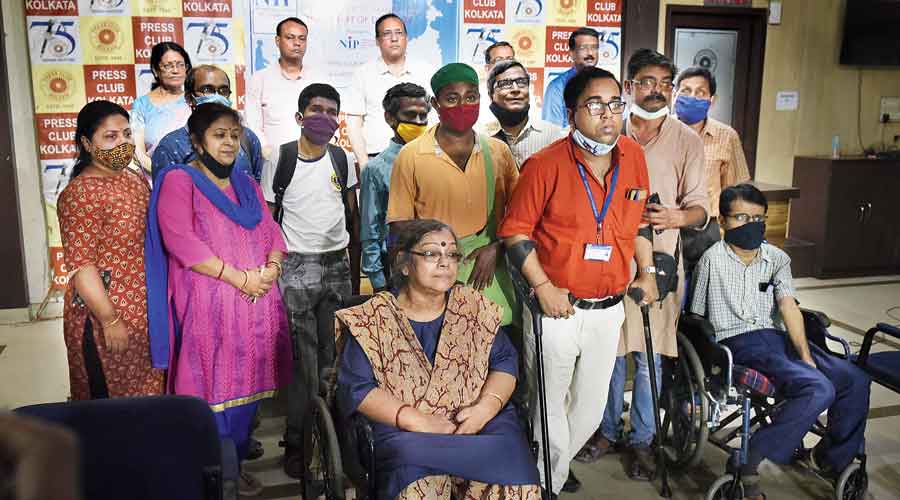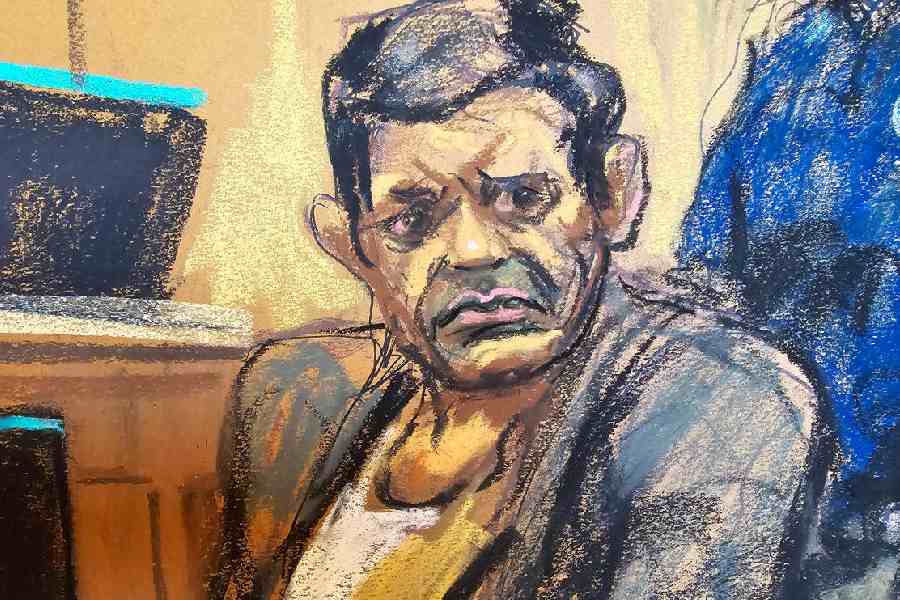The entrance to the electronic voting machine (EVM) room was so narrow at a booth in the 2019 Lok Sabha polls that a woman on a wheelchair found it difficult to negotiate. “You can ask your husband to cast your vote,” a polling official had whispered into her ear.
A man with cerebral palsy, who also uses a wheelchair, reached the ground floor of a polling booth but there was no ramp. He could not make his way past a flight of four-five stairs. He had to be lifted by others before he could cast his vote.
Differently-abled people and activists narrated the hurdles faced in exercising their voting rights in front of politicians during a panel discussion at a city club on Tuesday.
The facility of home-based postal ballot system has been available for voters with disabilities since 2019. But many of them are still to be included in the electoral rolls, said representatives of NGOs.
Saswati Acharya Mahanty, 52, a special educator with the Indian Institute of Cerebral Palsy for over two decades, has polio herself and uses a wheelchair.
“During the last election (2019), I could not enter the EVM room on my own. The polling staff finally helped me enter but not before an official suggested that my husband ‘cast my vote’. Why should that happen? My husband and I are entitled to have separate political preferences,” said Mahanty.
A visually impaired voter had asked for a Braille ballot guide at another booth during the 2019 elections. “The polling official sounded surprised at hearing the word,” the man recounted.
There were close to 3,00,000 voters with disabilities in Bengal during the 2019 polls, according to government estimates. District magistrates are supposed to have a database of voters with disabilities specifying the nature of disability on the electoral rolls.
The Election Commission’s Systematic Voters Education and Electoral Participation mandates the following: “Assured Minimum Facilities” at polling stations — “signage, help desk, polling booth at ground floor, obstacle free wide levelled pathway from entrance to voting compartment, ramp as per GOI standards, accessible toilets, drinking water, separate entry and exit, lighting, accessible furniture, Braille ballot guide, adjustable Braille embossed EVMs, wheel chairs, booth volunteers and display of accessible posters on information pertaining to voting”.
But on the ground, many of the facilities are absent, the speakers pointed out at the programme organised by NIP, an organisation that works with differently-abled people.
“The election manifestos give very little space to differently-abled people. Is it because they are not part of a vote bank?” asked Debajyoti Roy, the secretary of NIP.
Amiya Biswas, who represented Blind Persons’ Association, spoke of parliamentarians’ “general indifference” to the plight of people. “A 2019 hunger index placed India in 102nd place among 117 countries. A minister contested the report, saying India was a place where stray pups are also given food. There is a clear lack of empathy in the government and the parliament,” he said.
Many activists concurred that the problems would not be solved unless there was sufficient representation of differently-abled people in legislatures, from state assemblies to the parliament. “Elections and campaigns come and go. But there are hardly any differently-abled candidates fielded by any party,” said Roy. They called for “reservation of seats for differently-abled candidates in the legislatures”.
Tuesday’s panel comprised Fuad Halim of the CPM, Soumya Aich Roy of the Congress, Rajib Biswas of the BJP, Ambikesh Mahapatra, Jadavpur University professor, and Mita Banerjee, former disabilities commissioner of Bengal.









